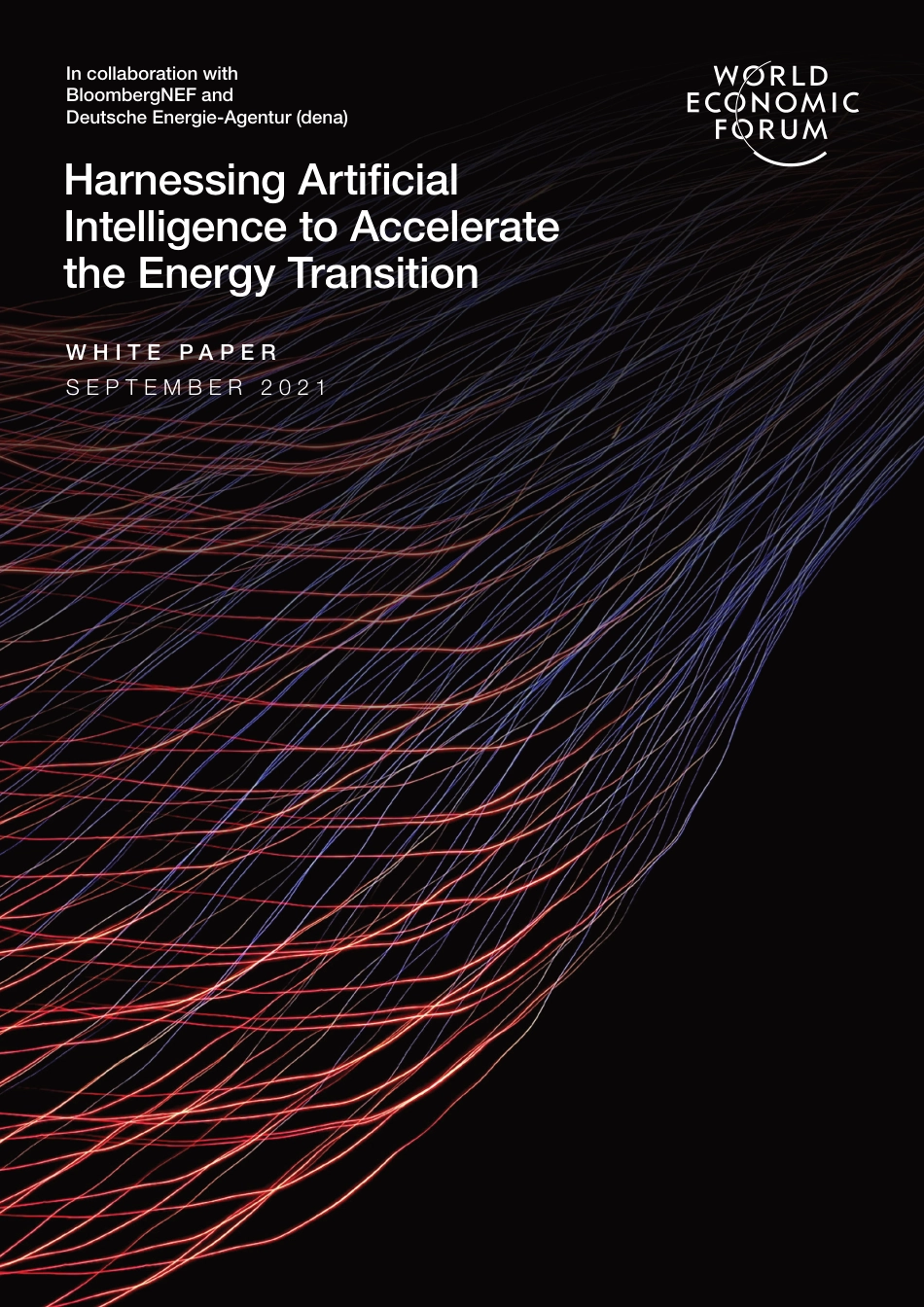Harnessing Artificial Intelligence to Accelerate the Energy TransitionW H I T E P A P E RS E P T E M B E R 2 0 2 1In collaboration with BloombergNEF and Deutsche Energie-Agentur (dena)ContentsPrefaceExecutive summary1 Why AI is needed for the energy transition2 Applications of AI for the energy transition3 “AI for the energy transition” principles4 Recommendations and outlookContributorsAcknowledgementsEndnotes34591521222324Images: Getty Images, Unsplash© 2021 World Economic Forum. All rights reserved. No part of this publication may be reproduced or transmitted in any form or by any means, including photocopying and recording, or by any information storage and retrieval system.Harnessing Artificial Intelligence to Accelerate the Energy Transition2PrefaceIt is increasingly clear that speeding up the transition to a low-carbon economy is not only essential but urgent, and the energy sector is at the heart of this challenge. This white paper comes at a critical moment. The first instalment of the IPCC’s sixth Assessment Report issued in August 2021 and increasingly visible signs of a changing climate over recent years, including heat waves, floods and fires, have focused the minds of policy-makers, corporates and investors alike. New emission reduction targets are emerging every week and many organizations are moving existing targets to nearer time frames. Some companies are even setting carbon-negative targets. With the 26th UN Climate Change Conference of the Parties (COP26) looming, we expect the rate of climate target announcements to continue at pace. What is less clear is how different stakeholders and the world overall can act at the speed and scale required to meet climate goals. The aim of this ...



